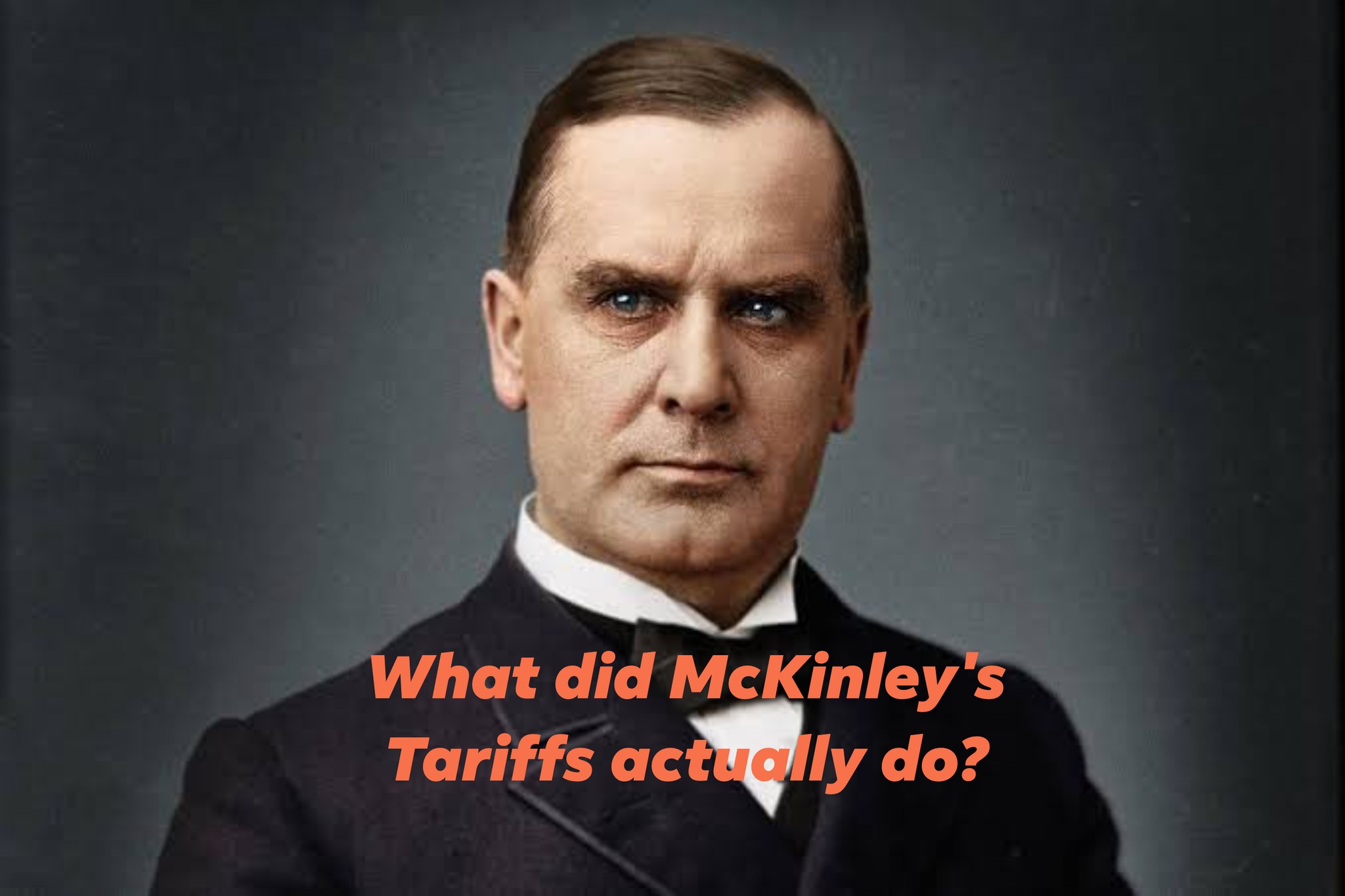
In my last post, I talked about why the 1890s weren’t the golden age Trump imagines. Now let’s talk about McKinley himself—specifically his obsession with tariffs and how it backfired on America and the world.
At a recent event, Trump said:
“our country in the 1890s was probably … the wealthiest it ever was, because it was a system of tariffs and we had a president, you know, McKinley, right? […] he was really a very good businessman. … We were a very wealthy country.”
McKinley built his career on pushing tariffs as a silver bullet for economic growth. But just like Trump, he didn’t understand basic economics or global consequences.
McKinley’s Tariff Flip-Flop: A Policy Bought by His Donors
In 1890, McKinley pushed the McKinley Tariff, a massive 50% tax on imported goods. It was supposed to protect American businesses—but here’s what really happened:
- Prices skyrocketed for consumers.
- U.S. exports collapsed as foreign nations retaliated with their own tariffs.
- Public outrage was immediate, and McKinley’s party got crushed in the 1890 elections.
So what did McKinley do when he actually became president? He reversed course.
His 1897 Dingley Tariff was full of loopholes and special exemptions—not because he learned his lesson, but because his corporate donors needed them. The tariff wasn’t about protecting American workers—it was about protecting the industries that funded McKinley’s campaign.
Consider who funded Trump’s campaign and what their influence in the government is now. History may not repeat itself but it sure rhymes.
The Smoot-Hawley Tariffs Stoke Global Conflict
Historian Sarah Paine describes “Half-Court Tennis” thinking–when a country only focuses on its own actions without thinking about how the rest of the world will react. If you aren’t looking across the net and predicting what your opponent is going to do, how well can you play?
The Smoot-Hawley Tariff Act of 1930 is a brutal example. The steep tariffs imposed during the Great Depression didn’t just choke domestic trade—they decimated international commerce. Japan, an island nation heavily dependent on trade, felt the squeeze even more. Hit hard by the depression and reliant on U.S. oil imports, Japan’s desperation helped push it toward territorial expansion in the Pacific—a path that eventually led to Pearl Harbor.
Tariffs Aren’t a Silver Bullet—They’re a Loaded Gun Aimed at the Economy
McKinley wasn’t a genius businessman—he was a short-sighted politician who hurt America and the world. And now Trump is repeating the same mistakes. If Trump really wants to be like McKinley, he should at least learn how badly McKinley’s policies failed. But then again, learning from history has never been his strong suit.
References: